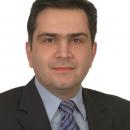Risk Assessment and Management of Pipeline Projects subjected to Geohazards
Background
The course will provide an indepth introduction into the subject and importance of Natural Hazards during the stages of evaluation, design, construction and operation of a pipeline. Delegates will learn about the need for qualitative and quantitative Assessment of the Risk associated with various Natural Hazards (such as Flooding, Landslides and Earthquakes) in relation to the route selection and the pipeline integrity. Additionally, potential protection/mitigation measures and monitoring techniques, both related to Risk Management, will be presented. The main disciplines that will be presented during the course are Hydrology, Hydraulics, Engineering Geology, Soil Mechanics, and Rock Mechanics, while special emphasis will be given on Slope Instabilities and Soil-Structure Interaction. Finally, since many countries worldwide are characterized by moderate or high seismicity, the course will also introduce the topics of Geotechnical Earthquake Engineering, Pipeline Seismic Design, and Strain-Based Design.
Agenda
1 Introduction (1 hour)
1.1 Types of Geohazards
1.2 Case Histories of Geohazards
2 Geohazards & Pipeline Design (2 hours)
2.1 Assessment of Geohazards
2.2 Pipeline Vulnerability to Geohazards
2.3 Risk Management
3 Earthquake-related Geohazards & Seismic Pipeline Design (2 hours)
3.1 Assessment of Earthquake-related Geohazards
3.2 Pipeline Vulnerability to Earthquake-related Geohazards
3.3 Seismic Risk Management
4 Monitoring Techniques (1 hour)
4.1 Ground Deformations
4.2 Seismic Ground Motion
4.3 Pipeline Distress
Target Group
Managers, Pipeline Engineers, Technicians or other interested personnel from operators that are involved during the stages of evaluation, design, construction and operation of a pipeline. Engineering Consultants active in the field of geotechnical engineering. Personnel from the authorities or certification bodies involved with pipeline integrity and assessment and licensing.
Seminars Contact



